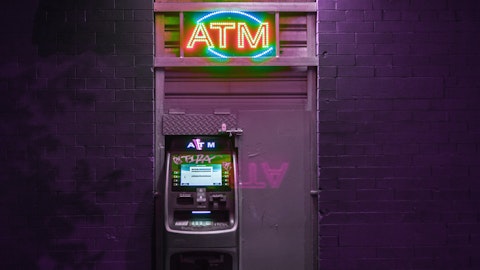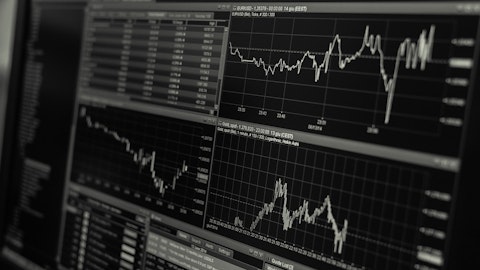Chris McGratty: Great. Maybe for the team. You talked about capital — use of capital a lot the buybacks seemingly, I think the market likes that. What about an appetite to reposition a portion of the bond portfolio given the move in rates?
Christopher Del Moral-Niles: I think we’re always looking at the right portfolio strategies. And I think we’re going to be looking at our cash positions, our portfolio strategies, and our growth dynamics as we look here at the fourth quarter going into planning for next year, and we’ll take all of that into consideration. And I think as Dominic has said, we’re shareholder-friendly we’ll do the right thing. But we’ll be very thoughtful about what that right thing should be.
Chris McGratty: Okay. Great. And then a lot of questions about office and maybe by the market. But Dominic, do you think that’s where the — we should be focusing? I mean we’ve seen some C&I credits from some of your peers go sideways this quarter. I guess if you were to kind of stack rank where you are most worried about credit going into the next year? Like what would you say?
Dominic Ng: Right now, I’m not too concerned about much anything, frankly, from a credit perspective. We actually are in pretty good shape. I mean we do have a slight pickup in terms of charge-offs, but that’s really compared with relatively, I mean, almost like no charge-off at all for the last few quarters. So, I think that we just kind of normalize at this point. At this stage, I really — I mean if I look at the overall credit portfolio, I really haven’t seen much that I would say really got me concerned. I mean I will reflect back five years ago, six years ago, I mean, this oil and gas portfolio that we had was not very good. And so, we had a little bit of charge-off. But the nice thing about having a very diverse portfolio that we have is that despite the fact that we have some challenges with our oil and gas portfolio, the fact is we still end making record earnings, simply because everything else is doing so well.
So that one particular industry couldn’t hurt us much. So when I look at CRE right now, office building, a lot of people have their eyes on it, and I’m pretty sure at some point, we may take a hit here and there. It’s just that the overall portfolio is not big enough. The size of this portfolio to the size of loans. The average size, as you can see, is so small and the LTV is so low and so therefore, at the end of the day, and the earnings for everything else is so high. And I think that all in all, we should be in great shape. So at this stage right now, I’m still not concerned. And I would tell you though I always expect that by the second quarter, the third quarter will be going through a recession. That’s what I expected, a year, 1.5 years ago.
Again, it didn’t turn out. And would it be like six months from now or is that actually we are exactly in the soft lending who knows. But the way I look at it is that it doesn’t really matter whether it’s a recession or soft lending. Our position is that East West will continue to stay true to our philosophy, which is having a very diverse portfolio and having a strong customer base. And this is how we make sure that we — at the end of the day, relatively speaking, we always end up doing better at the other banks.
Operator: This concludes our question-and-answer session. I would like to turn the conference back over to Dominic Ng for any closing remarks.
Dominic Ng: Well, I just want to thank everyone for listening to our call today, and I’m looking forward to talking to all of you again in January. Thank you.
Operator: The conference has now concluded. Thank you for attending today’s presentation. You may all disconnect.
Follow East West Bancorp Inc (NASDAQ:EWBC)
Follow East West Bancorp Inc (NASDAQ:EWBC)
Receive real-time insider trading and news alerts





